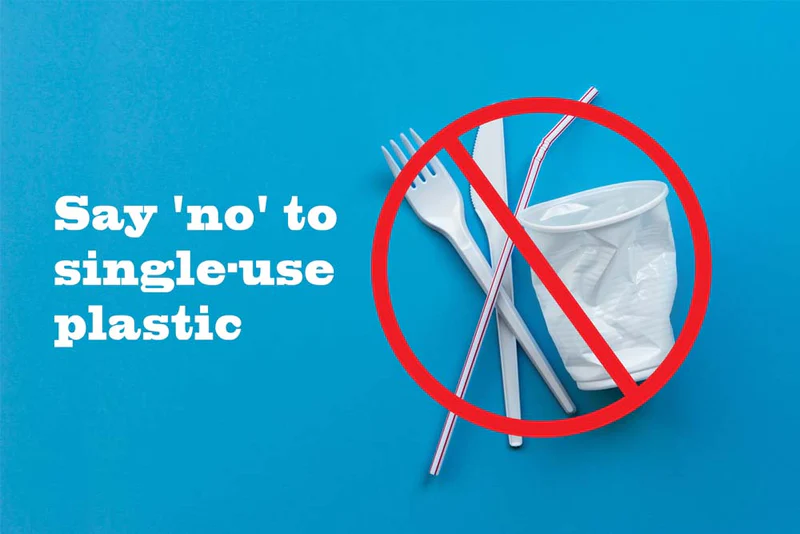The single use plastic ban is no news for those of us that are conscious about the way we treat our planet and the legacy we leave behind for the generations to follow. And since we are speaking about legacy, the latest environmental facts and statistics should be a real cause of concern for all of us. In fact, one of the most alarming warnings comes from WWF which states that we might be the last generation that can save nature.

The Planet Is In Crisis
Among the many ways we are slowly killing not only our planet, but also ourselves, plastic pollution has now become a full blown global crisis. If you are still new to the whole sustainability concept, you might be thinking that plastic cannot be that bad. In the end, it’s one of humanity’s greatest discoveries, right?
Well…the answer is not so simple. There is no doubt that the benefits of plastic are not easily matched by any other material and for sure plastic is not pure evil. In fact, the single use plastic problem doesn’t even derive from plastic, but from the careless way that we are handling it. And if you still don’t believe that we are facing serious problems ahead and you might even start to wonder whether I am not just a plastic drama queen, let me give you some food for thought.
Single Use Plastic Ban Going Global
Our plastic addiction is so destructive, that can lead us straight to the end of the world as we know it. As a result, solving the single use plastic problem became a top priority on the agendas of many governments. In an attempt to minimize the harm we are causing to our environment, the single use plastic ban directive was adopted by the European Parliament in March 2019. As of 2021, the majority of the single use plastic products that are littering our earth and oceans, like drinking straws, plastic bags, glasses, cutlery or plates will be banned from selling within the European Union.
Luckily, European countries are not the only ones concerned with preventing plastic waste. In fact, measures were taken even since 2002, when Bangladesh became the first country in the world to ban single use plastic bags. South Africa came second in 2004 and soon after, countries like Morocco, Kenya and Rwanda have all adopted similar bans. And the good news doesn’t end here. Actually, one of this year’s greatest resolutions towards the environment comes from an unlikely place. China, one of the world’s biggest plastic producers and consumers agreed to join the single use plastic ban movement, by developing a massive plan meant to solve the problem throughout the whole country till 2022.

Another big surprise for me was finding out the drastic measures that some countries have resorted to in their fight against plastic waste. A great example comes from Kenya. In 2017, Kenya adopted one of the toughest laws against the use of plastic bags. Kenyan people that are being caught producing, selling or even using plastic bags, can receive fines of up to $40,000 or can even risk being sentenced to jail. So in case you are planning to spend your next holiday in Kenya, it’s better to be on the safe side and pack in your suitcase a stylish organic cotton tote bag which can accompany you everywhere from the grocery store to the beach or even during a safari trip.
And since the single use plastic ban has become a global movement, there’s no surprise that it has even reached the highest heights on Earth. Starting January 2020, the authorities in Nepal have banned single-use plastics in the Everest region, in an attempt to try and reduce all the waste left behind by climbers.
As this is our first post in 2020, I will end by kindly asking you all to make a new year resolution and start thinking more about our environment. Every little step we take and every single thing we do can really make a difference. It is only together that we can heal the world and learn how to live in harmony with this beautiful planet that we all call HOME!
